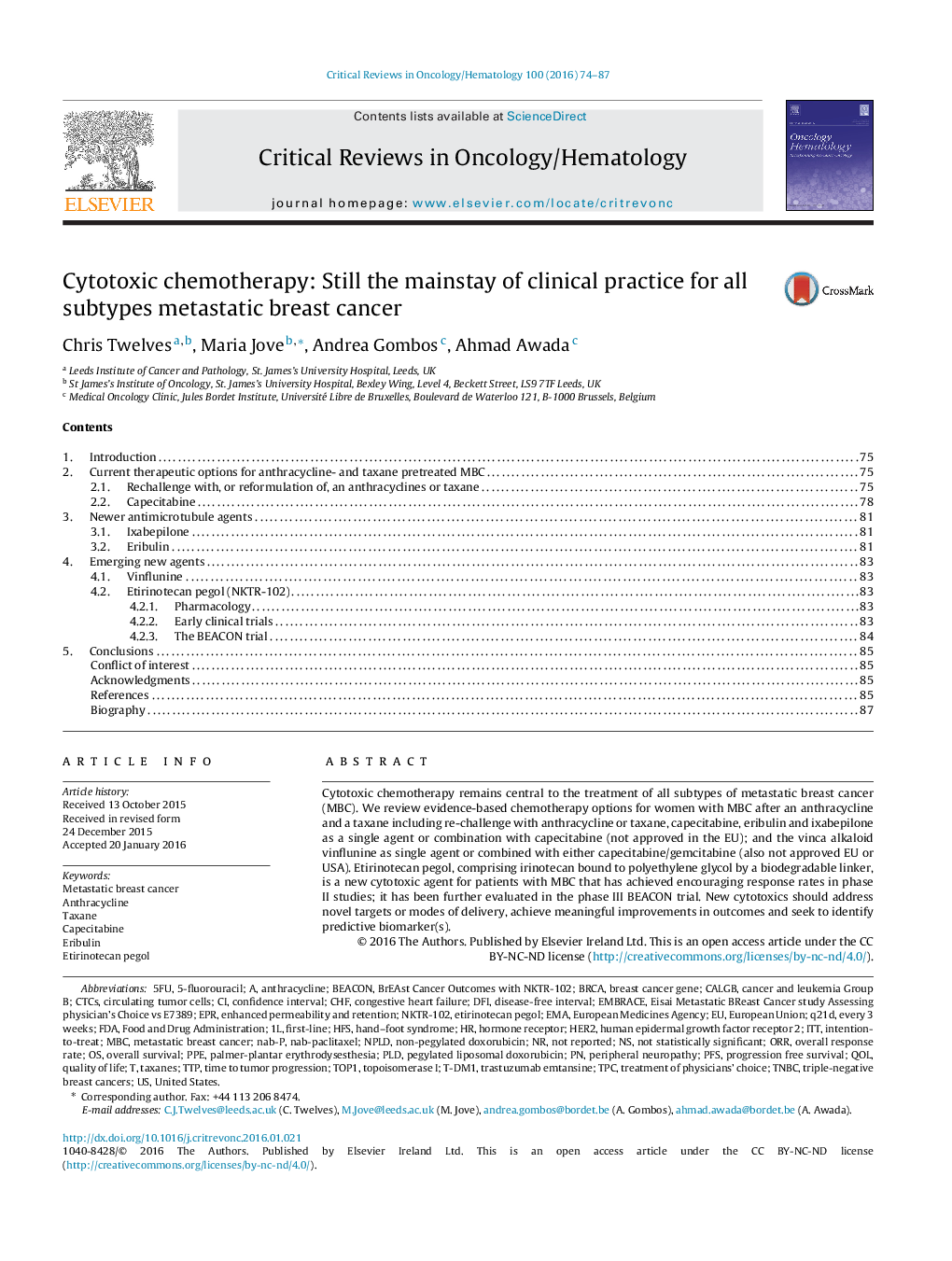| Article ID | Journal | Published Year | Pages | File Type |
|---|---|---|---|---|
| 6113429 | Critical Reviews in Oncology/Hematology | 2016 | 14 Pages |
â¢In the era of targeted treatments, chemotherapy remains the backbone for treatment of breast cancer being an option for all molecular subtypes of the disease. This review is intended to:â¢Give a practical guideline for treating women with metastatic breast cancer (MBC) helping clinicians to make evidence based decisions following treatment with an anthracycline and a taxane.â¢Provide an update on cytotoxic drugs recently evaluated in late line MBC.â¢Identify priorities in the development of new cytotoxics for women with MBC.
Cytotoxic chemotherapy remains central to the treatment of all subtypes of metastatic breast cancer (MBC). We review evidence-based chemotherapy options for women with MBC after an anthracycline and a taxane including re-challenge with anthracycline or taxane, capecitabine, eribulin and ixabepilone as a single agent or combination with capecitabine (not approved in the EU); and the vinca alkaloid vinflunine as single agent or combined with either capecitabine/gemcitabine (also not approved EU or USA). Etirinotecan pegol, comprising irinotecan bound to polyethylene glycol by a biodegradable linker, is a new cytotoxic agent for patients with MBC that has achieved encouraging response rates in phase II studies; it has been further evaluated in the phase III BEACON trial. New cytotoxics should address novel targets or modes of delivery, achieve meaningful improvements in outcomes and seek to identify predictive biomarker(s).
